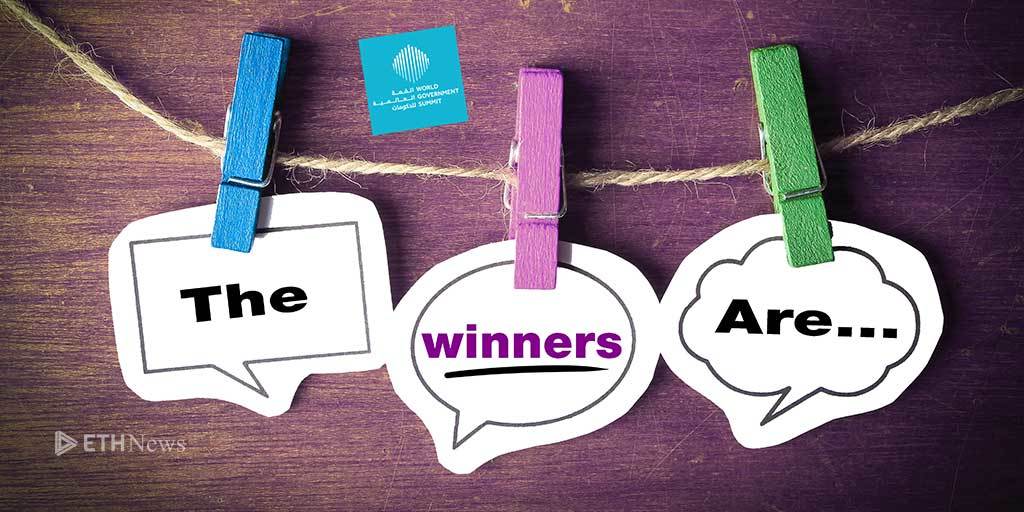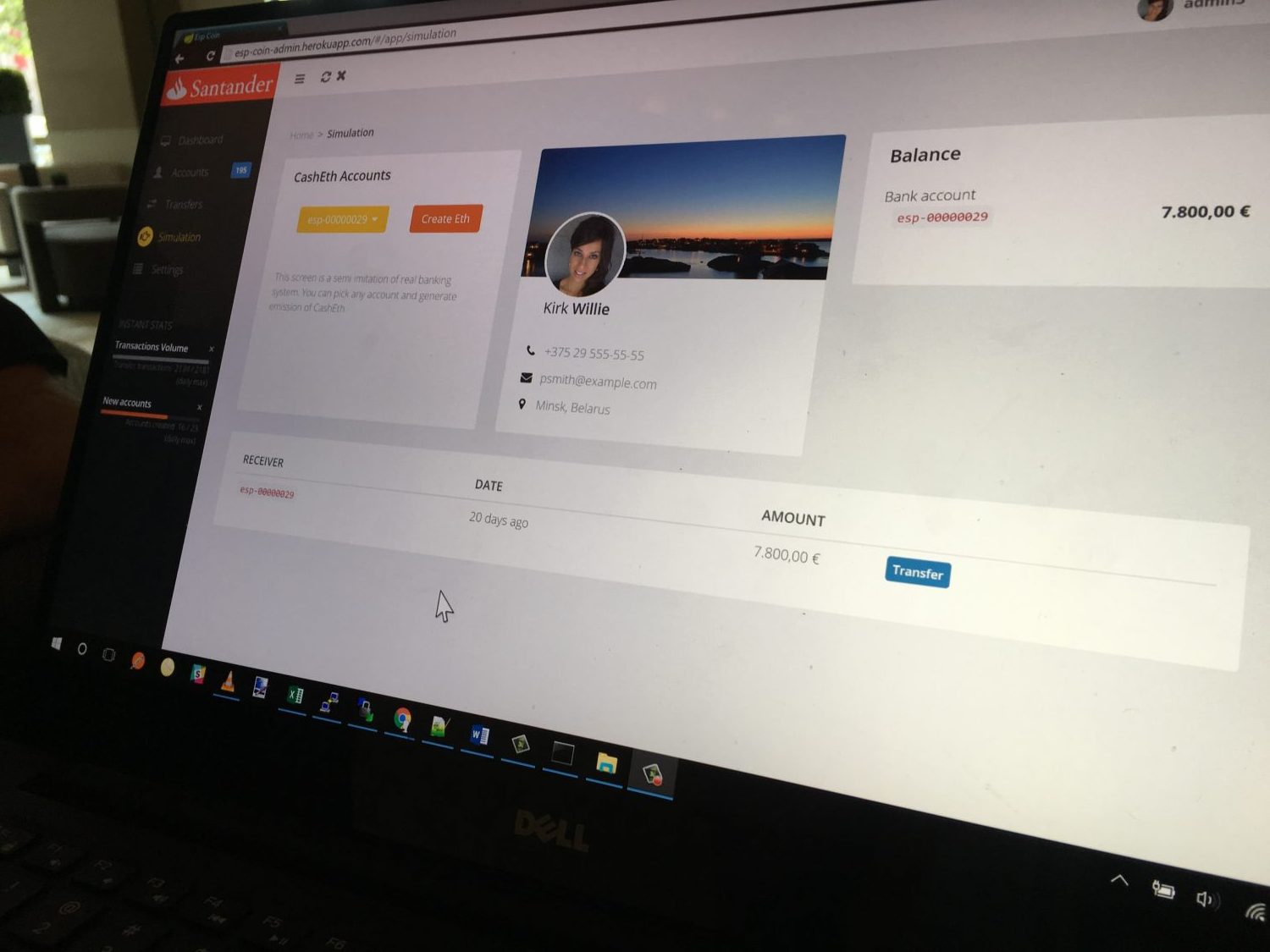Dezentral, autonom, menschenlos: Die Investmentfirma DAO existiert nur als Code. 140 Millionen US-Dollar hat sie gesammelt. Zwei Deutsche haben sie programmiert.
Von
Hannes Grassegger – (*1980) ist Ökonom und schreibt u.a. für die Neue Zürcher Zeitung, das SZ-Magazin und ZEIT ONLINE. Er ist Autor von
Das Kapital bin ich (Kein & Aber, 2014) zu Fragen von Freiheit, Eigentum und Menschlichkeit in einer digitalisierten Welt. Grassegger twitter unter
@Hnsgr.
Im Silicon Valley dürften einige Risikoinvestoren gerade nervös werden. Ihr Geschäftsmodell wird gerade disrupted. Normalerweise läuft das folgendermaßen: Ein paar aufgeregte Jungunternehmer legen ihnen zitternd einen Businessplan vor, wie sie Firmen oder ganze Branchen durch eine Softwarelösung ersetzen wollen. So wie Amazon es mit Buchläden gemacht hat, Airbnb mit Hotels und Uber mit Taxidiensten.
Sind die Investoren überzeugt, sagen sie, die Branche sei reif für die Disruption und geben ihr Geld gegen Geschäftsanteile am Start-up. Läuft dann alles wie geplant, sind die Firmenanteile der Investoren irgendwann wahnsinnig viel wert – während anderswo Leute auf der Straße stehen, weil ihre Jobs durch eine App ersetzt wurden.
Daher gehören die Risikokapitalgeber des Silicon Valleys zu den mächtigsten Unternehmern der Welt, sie bestimmen die Richtung der Automatisierung. Ihre Macht ist zudem äußerst konzentriert. Es gibt eine Straße, in der praktisch alle wichtigen Risikokapitalgeber in hübschen kleinen Häuschen ihre Büros betreiben,
die Sand Hill Road. Daher pilgern so viele deutsche Jungunternehmer dorthin. Sie ziehen zum Geld.
Kapitalisten durch Code ersetzen
Eigentlich wäre das auch der Weg gewesen für die Brüder Christoph und Simon Jentzsch, zwei Programmierer aus der kleinen Universitätsstadt Mittweida in Mittelsachsen. Zusammen mit ihrem Londoner Partner, dem Fintech-Unternehmer Stephan Tual, bauen sie derzeit die Firma Slock.it auf. Slock.it soll eine Plattform für das Internet der Dinge werden, eine Art Airbnb für alles, mit dem sich im kommenden Zeitalter der totalen Vernetzung die ungenutzten Potenziale leerstehender Parkplätze, ungefahrener Autos oder ungenutzter Rechenkapazitäten vermarkten ließen. Die Universal-Sharing-Plattform.
Doch statt sich ins Valley aufzumachen und sich von Investoren vorschreiben zu lassen, wie sie zu arbeiten haben und wer letzten Endes den Profit einfährt, hatten die Gründer eine andere Idee. Sie wollten etwas Neues versuchen und die Kapitalisten durch Code ersetzen.
„Ich finde es nicht richtig, wie stark eine Handvoll Investoren die Entwicklung der Technologie bestimmt“, sagt der 31-jährige Christoph Jentzsch. Jede starke Zentralisierung von Entscheidungsprozessen widerspreche seiner politischen Haltung. Also hätten er und seine Partner einfach eine Bauanleitung für eine vollelektronische, dezentrale Investmentfirma verfasst und online gestellt, als „ein soziales Experiment“. Sie heißt DAO – Decentralized Autonomous Organisation.
DAO besteht nur aus Smart Contracts und einem E-Voting-System
Dabei hatten sich die drei ein Konzept der Wirtschaftstheorie zunutze gemacht, die Vertragstheorie. Laut der ist eine Firma nichts anderes als ein Netzwerk aus Verträgen, in denen Ziele, Befugnisse und Zeiträume definiert werden. Alles innerhalb der Firma wird durch sie gelenkt, von unten nach oben, ob Maschine oder Mensch. Jeder kennt Arbeitsverträge, die das Handeln der Mitarbeiter steuern sollen. Angestellte „exekutieren“ vertraglich vorgegebene Aufgaben. Daher auch der englische Titel CEO – Chief Executive Officer.
Aus der Sicht von Programmierern lässt sich das meist relativ einfach als Programm formulieren, als eine Reihe von elektronischen Wenn-dann-Beziehungen. Smart Contracts heißen solche sich automatisch ausführenden Digitalverträge. In der Theorie sind sie objektiver als Manager, die gerne mal ihre eigenen Interessen über Firmenvorgaben stellen.
Im Fall der DAO ersannen die Slock.it-Gründer ein einfaches Prinzip: Zuerst können sich Interessierte in die Firma einkaufen, indem sie elektronische Token erwerben. So kommt Geld auf das Firmenkonto, also den Fonds. Die Token wiederum repräsentieren Stimmrechte. Nach einer vierwöchigen Tokenauktion zum erstmaligen Geldsammeln kann der digitale Investmentfonds entscheiden, wohin mit dem gesammelten Geld. Das bestimmen die Besitzer der Stimmrechte – in einer elektronischen Abstimmung, ähnlich dem E-Voting. Die DAO ist also im Kern eine Geldsammelmaschine plus Entscheidungsgremium.
Der große Unterschied zu einem normalen Investmentfonds aber ist nicht nur, dass hier anstelle von CEOs und Managern eine Art elektronische Aktionärsversammlung – auch wenn sich Christoph Jentzsch gegen dieses Wort wehrt – entscheidet, sondern vor allem, dass die Firma keinen physischen Sitz hat.
Ihre Adresse lautet: 0xbb9bc244d798123fde783fcc1c72d3bb8c189413.
Getreu der Dezentralisierungsphilosophie der Jentzsch-Brüder ist das Investmentfirma-Programm in einer neuen Form von Peer-to-Peer-Netzwerk abgespeichert, der Ethereum-Blockchain. Das Prinzip ist von Bitcoin bekannt: Es handelt sich schlicht um ein gewaltiges Register, das wie das Kontobuch einer Bank oder ein großes Excel-Dokument automatisch alle Aktionen seiner Nutzer verzeichnet. Während es bei der Bitcoin-Blockchain um die Überweisungen von digitalem Geld geht, die jeder angeschlossene Rechner aufzeichnet, damit niemand betrügen kann, hat Ethereum den Handlungsspielraum erweitert. Die Ethereum-Blockchain ist dafür geschaffen, dezentral komplexe Handlungen auszuführen. Richtige Programme. Beispielsweise die Vertragsprogramme, aus denen die DAO besteht. Die Ethereum-Währung Ether dient hierbei als eine Art Lastwagen für Informationspakete.
Der Vorteil jeder Blockchain: Sie ist äußerst hartnäckig. Fällt ein Rechner aus, führen Tausende oder sogar Millionen andere weltweit die Arbeit fort. Um Programme oder auch Geld im Netzwerk zu verorten, werden Zahlen- und Buchstabencodes wie jener der DAO erstellt. Sie dienen als anonyme Nummernkonten.
Die neue Firma ist damit auf den ersten Blick unangreifbar. Sie ist in keinem Land registriert und unterliegt nach Ansicht der Entwickler deshalb auch keiner Gesetzgebung und Regulierung. Gleichzeitig ist im technisch absolut transparenten Blockchain-Netzwerk zwar jederzeit sichtbar, welches Nummernkonto wann wie viel Geld an welche andere Adresse geschickt (oder irgendeine sonstige Aktion ausgeführt) hat. Aber es ist eben nicht auf den ersten Blick bekannt, wer die Person hinter einem Nummernkonto ist.
Das größte Crowdfunding der Geschichte
Sinnigerweise kann man sich in die neue Investmentfirma nur mit der Digitalwährung Ether einkaufen, die auf anonymen Nummernkonten basiert. So ist also nicht sofort erkennbar, wer genau die Investoren sind. Totale Transparenz plus totale Anonymität, das versuchen die Blockchain-Jünger zu vereinbaren. Wobei die erfolgreichen Ermittlungen gegen Geldwäscher, die ihre Spuren mit noch so verschachtelten Bitcoin-Überweisungen verwischen wollten, allen Anonymitätssuchenden eine Warnung sein sollten.
Das Interesse am vollelektronischen Start-up ist gewaltig. „Wir hatten nie mit dieser Größenordnung gerechnet“, sagt Christoph Jentzsch. Ether im momentanen Wert von mehr als 144 Millionen US-Dollar sind in noch nicht ganz vier Wochen eingeflossen. Es ist damit bei Weitem das größte Crowdfunding der Internetgeschichte. Zuvor lag der Rekord
bei 114 Millionen US-Dollar für ein Videogame. Bei Kickstarter liegt er bei schlappen 20 Millionen. Facebook hat mehr als drei Jahre gebraucht, um auf eine ähnliche Start-up-Finanzierung zu kommen wie die DAO in wenigen Tagen.
Und aus Sicht von Staaten und Steuerbehörden sind die legendären Briefkastenfirmen in Panama im Vergleich mit der DAO so retro wie ein Grammophon zu Soundcloud.
Niemand soll die DAO regulieren oder zerschlagen können
Zumindest in der Theorie der Entwickler haben nicht nur Staaten keinen Zugriff auf die neue Firma, falls man sie überhaupt so nennen kann. Möglicherweise kann überhaupt niemand sie stoppen. Darauf ist Jentzsch stolz. The DAO sei nicht nur dezentral, sondern eben „autonom“. Der Code lege fest, dass es keinen Chef gebe: „Niemand ist in der Lage, der Organisation den Stecker zu ziehen und ihren Betrieb einzustellen“. Nicht einmal die Erschaffer selbst. „Nur wenn alle Token-Inhaber einstimmig entscheiden, den Betrieb einzustellen, wird die DAO geschlossen.“ Im Falle einer größeren Uneinigkeit in der Versammlung der Stimmrechtsinhaber würden automatisiert Abspaltungen erzeugt – und so entstünden ähnlich einer Zellteilung neue DAOs, gefüllt mit dem Geld der abtrünnigen Subgruppen.
Damit könnten die Sachsen einem langgehegten Traum der Blockchain-Gemeinde aus radikal-libertären, staatskritischen Codern zum Durchbruch verhelfen. Dem Traum von der Verselbstständigung des Kapitalismus. Klassisches Beispiel: Selbstfahrende Taxis, die sich selbst gehören und Reparaturen oder sogar Expansion durch ihre Erlöse finanzieren. Inspiriert ist das ganze durch Ethereum-Vordenker Vitalik Buterin. Er sagt, ihn habe der Science-Fiction-Roman Daemon des US-Bestseller-Autoren Daniel Suarez beeinflusst, in dem eine dezentral abgespeicherte Roboterfirma beschrieben wird, geführt von einer künstlichen Intelligenz: Daemon.
In der DAO entscheiden allerdings Menschen. Der Firma können auf elektronischem Weg Vorschläge zur Finanzierung von realen Firmen oder auch gemeinnützigen Organisationen zugesandt werden. Diese werden von menschlichen „Kuratoren“, darunter einige der wichtigsten Ethereum-Entwickler, kurz auf formale Korrektheit geprüft. Dann werden sie in einem mindestens zweiwöchigen Abstimmungsvorgang allen Stimmrechtsinhabern vorgelegt. Real auszahlend ist eine Schweizer Firma in Neuenburg, geführt von einem Schweizer Piraten-Politiker.
Slock.it-Berater und Ethereum-Blockchain-Mitentwickler Gavin Wood erwartet, dass sich bei den Abstimmungen eine Art Parlament bilden könnte, mit Parteien und Gruppierungen. „Je nachdem wie man es ansieht, ist die DAO nicht eine Firma, sondern ein Staat.“ Schon in seinem Konzeptpapier verweist Christoph Jentzsch auf die Liquid-Democracy-Technik der Piratenpartei. Allerdings wäre die DAO eine Demokratie, in der man um so mehr Stimmen hat, je vermögender man ist.
Ob das alles legal ist, ist umstritten. Vor allem: legal nach welchen nationalen Gesetzen eigentlich? Das ganze existiert ja nur im Netz und nicht einmal auf einem einzelnen, lokalisierbaren Server. Und wie gut oder böse die DAO im Verhältnis zu den bisherigen Silicon-Valley-Investoren ist, wird abhängen von ihren Investitionen.
Wenn die DAO-Stimmberechtigten sich dafür entscheiden würden in nordkoreanische Zwangsarbeiterfabriken zu investieren – wer könnte sie stoppen? Jentzsch sagt, die rechtliche Haftbarkeit könne auf der Input-Seite liegen, also bei den Geldgebern und Abstimmenden. Allerdings seien die Rechtsanwälte, die er kontaktiert habe, meist überfordert gewesen mit der neuen Situation. In der traditionell nicht gerade staatsverliebten Finanzbranche wartet man bereits auf das wütende Aufschnauben der Regulatoren.
Im Gespräch mit der
New York Times hatte sich Christoph Jentzsch etwas besorgt gezeigt, wohin die Entwicklung führen wird. Es sei ein Experiment, das eben größer als erwartet geworden sei und sich verselbstständigt habe. Er aber fühle sich nicht in der Verantwortung, er habe den Code nur ins Netz gestellt, hochgeladen habe ihn ein anonymer Nutzer.
Ein Perpetuum Mobile im Finanzsystem?
Andererseits haben die Slock.it-Gründer wohl nun ihren perfekten Investor gefunden. Sie haben der DAO als Allererste einen Vorschlag vorgelegt, der wohl durchkommen dürfte. Und da die DAO ja einfach nur Geld vorschießt und im Gegenzug dafür wohl Profitanteile kassiert, wäre es technisch auch denkbar, dass sie neben der Rolle als Anschubfinanziererin auch als zahlungskräftige Kundin von Slock.it tätig werden könnte.
Es wäre ein perfekter Kreislauf. Ein sich selbst fütterndes
Pyramidenschema. Vielleicht hoffen die Jentzsch-Brüder und Tual insgeheim, so eine Art finanzielles Perpetuum Mobile erfunden zu haben. Das allerdings implodiert, wenn der Wechselkurs von Ethereum zu anderen Währungen absinkt.
Auf jeden Fall ist das ganze eine Fintech-Revolution. In einer Zeit, in der viele über das angeblich nahende Ende des Kapitalismus reden und über den Post-Kapitalismus, erfinden andere den Kapitalismus neu: als digital entfesselte Spekulations-Maschine.
Bis zum kommenden Samstag läuft die große DAO-Geldsammelaktion noch. Danach nimmt die Firma ihren Betrieb auf.
Quelle: Zeit online







